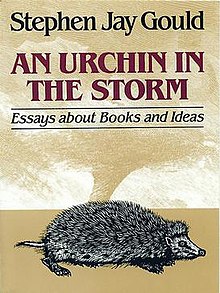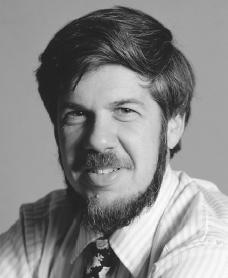
Stephen Jay Gould was an American paleontologist, evolutionary biologist, and historian of science. He was one of the most influential and widely read authors of popular science of his generation. Gould spent most of his career teaching at Harvard University and working at the American Museum of Natural History in New York. In 1996, Gould was hired as the Vincent Astor Visiting Research Professor of Biology at New York University, after which he divided his time teaching between there and Harvard.
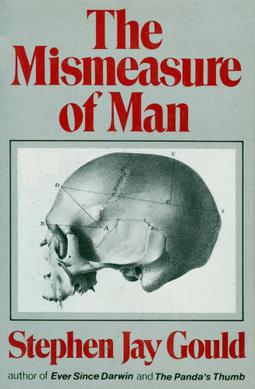
The Mismeasure of Man is a 1981 book by paleontologist Stephen Jay Gould. The book is both a history and critique of the statistical methods and cultural motivations underlying biological determinism, the belief that "the social and economic differences between human groups—primarily races, classes, and sexes—arise from inherited, inborn distinctions and that society, in this sense, is an accurate reflection of biology".
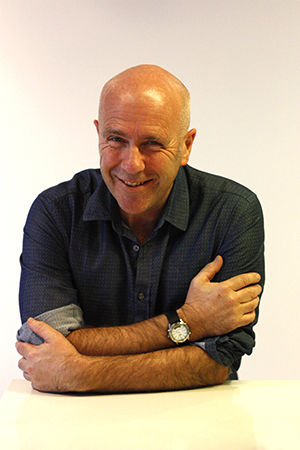
Richard Miller Flanagan is an Australian writer, who has also worked as a film director and screenwriter. He won the 2014 Man Booker Prize for his novel The Narrow Road to the Deep North and the 2024 Baillie Gifford Prize for Question 7, making him the first writer in history to win both Britain's major fiction and non-fiction prizes.

Speed-the-Plow is a 1988 play by David Mamet that is a satirical dissection of the American movie business. As stated in The Producer's Perspective, "this is a theme Mamet would revisit in his later films Wag the Dog (1997) and State and Main (2000)". As quoted in The Producer's Perspective, Jack Kroll of Newsweek described Speed-the-Plow as "another tone poem by our nation's foremost master of the language of moral epilepsy."
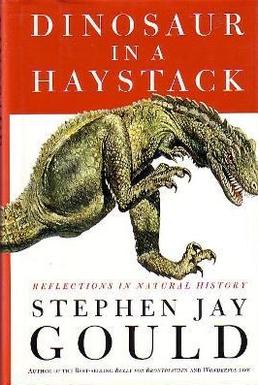
Dinosaur in a Haystack is a 1995 book by the paleontologist Stephen Jay Gould. It collects essays culled from Gould's monthly column "The View of Life" published in Natural History magazine, which Gould contributed for 27 years. The book deals with themes familiar to Gould's writing: evolution, science biography, probabilities, and strange oddities found in nature.
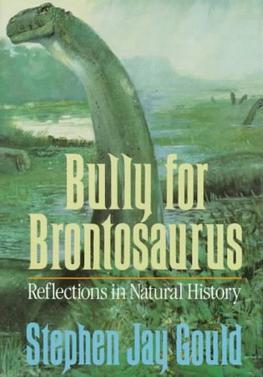
Bully for Brontosaurus (1991) is the fifth volume of collected essays by the Harvard paleontologist Stephen Jay Gould. The essays were culled from his monthly column "This View of Life" in Natural History magazine, to which Gould contributed for 27 years. The book deals, in typically discursive fashion, with themes familiar to Gould's writing: evolution and its teaching, science biography, and probabilities.
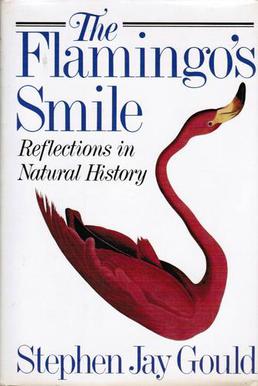
The Flamingo's Smile: Reflections in Natural History, published in 1985, is the fourth volume of collected essays from evolutionary biologist and well-known science writer Stephen Jay Gould; the essays were culled from his monthly column The View of Life in Natural History magazine, to which Gould contributed for more than two decades. The book deals, in typically discursive fashion, with themes familiar to Gould's writing: evolution and its teaching, science biography, probabilities and common sense.

Eight Little Piggies (1993) is the sixth volume of collected essays by the Harvard paleontologist Stephen Jay Gould. The essays were selected from his monthly column "The View of Life" in Natural History magazine, to which Gould contributed for 27 years. The book covers topics that are common to Gould's writing in a discursive manner, including evolution and its teaching, science biography, probabilities, and common sense.
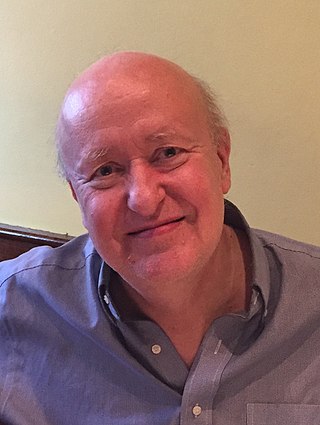
Tim Page is an American writer, music critic, editor, producer and professor who won the 1997 Pulitzer Prize for his music criticism for The Washington Post. Anthony Tommasini, the chief music critic for The New York Times, has praised Page's criticism for its "extensive knowledge of cultural history, especially literature; the instincts and news sense of a sharp beat reporter; the skills of a good storyteller; infectious inquisitiveness; immunity to dogma; and an always-running pomposity detector." Other notable writings by Page include his biography of the novelist Dawn Powell, which is credited for helping to spark the revival of Powell's work, and a memoir that chronicles growing up with undiagnosed autism spectrum disorder.
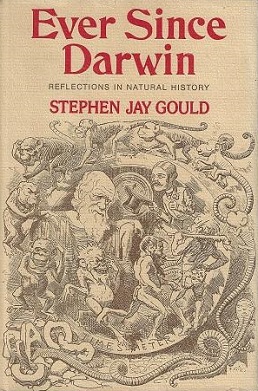
Ever Since Darwin is a 1977 book by the paleontologist Stephen Jay Gould. Gould's first book of collected essays, it originated from his monthly column "This View of Life," published in Natural History magazine. Edwin Barber—who was then the editorial director for W. W. Norton & Company— encouraged Gould to produce a book. He soon commissioned Gould to write The Mismeasure of Man, but it was not until three years later, when Gould accumulated 33 columns, that it occurred to either of them that the Natural History columns should be published in a single volume. The collection of essays, written between 1973–1977, became a best-seller and propelled Gould to national prominence.
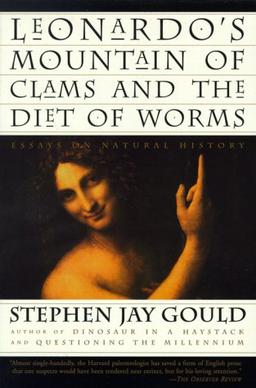
Leonardo's Mountain of Clams and the Diet of Worms (1998) is the eighth volume of collected essays by the Harvard paleontologist Stephen Jay Gould. The essays were culled from his monthly column "The View of Life" in Natural History magazine, to which Gould contributed for 27 years. The book deals, in typically discursive fashion, with themes familiar to Gould's writing: evolution and its teaching, science biography, probabilities and common sense.

Hen's Teeth and Horse's Toes (1983) is Stephen Jay Gould's third volume of collected essays reprinted from his monthly columns for Natural History magazine titled "This View of Life". Three essays appeared elsewhere. "Evolution as Fact and Theory" first appeared in Discover magazine in May 1981; "Phyletic size decrease in Hershey bars" appeared in C. J. Rubins's Junk Food, 1980; and his "Reply to Critics", was written specifically for this volume as a commentary upon criticism of essay 16, "The Piltdown Conspiracy".

I Have Landed (2002) is the 10th and final volume of collected essays by the Harvard paleontologist Stephen Jay Gould. The essays were culled from his monthly column "This View of Life" in Natural History magazine, to which Gould contributed for 27 years. The book deals, in typically discursive fashion, with themes familiar to Gould's writing: evolution and its teaching, science biography, probabilities and common sense.

The Lying Stones of Marrakech (2000) is the ninth volume of collected essays by the Harvard paleontologist, Stephen Jay Gould. The essays were culled from his monthly column "The View of Life" in Natural History magazine, to which Gould contributed for 27 years. The book deals with themes familiar to Gould's writing: evolution and its teaching, science biography, probability, and iconoclasm.

Questioning the Millennium is a 1997 book by the paleontologist Stephen Jay Gould that deals with the definition and calculation of the millennium, and its meaning in Western culture. New York Times reviewer Robert Eisner described it as a "slim and attractive meditation," which touches upon calendrics, Biblical exegesis, millennial cults, and includes "a charming essay on a young autistic man whose amazing ability to calculate instantly which day of the week coincided with any date mentioned over many centuries". Gould reveals that this young man was his autistic son, Jesse.

Ontogeny and Phylogeny is a 1977 book on evolution by Stephen Jay Gould, in which the author explores the relationship between embryonic development (ontogeny) and biological evolution (phylogeny). Unlike his many popular books of essays, it was a technical book, and over the following decades it was influential in stimulating research into heterochrony, which had been neglected since Ernst Haeckel's theory that ontogeny recapitulates phylogeny had been largely discredited. This helped to create the field of evolutionary developmental biology.
Elisabeth Anne Lloyd is an American philosopher of science specialising in the philosophy of biology. She is currently Distinguished Professor of History and Philosophy of Science and Medicine - as well as Adjunct Professor of biology - at Indiana University, Bloomington, affiliated faculty scholar at the Kinsey Institute and Adjunct Faculty at the Center for the Integrative Study of Animal Behavior.

Emily Gould is an American author, novelist and blogger who worked as an editor at Gawker. She has written several short stories and novels and is the co-owner, with fellow writer Ruth Curry, of the independent e-bookstore Emily Books.

Danielle Ofri is an American essayist, editor, and practicing internist. She is an attending physician at Bellevue Hospital, and a clinical professor of medicine at the New York University School of Medicine. Her writing appears in The New Yorker, The New York Times, and The Lancet.

Sherlock Holmes: The Unauthorized Biography is a Sherlock Holmes pastiche novel by Nick Rennison, originally published in 2005.
